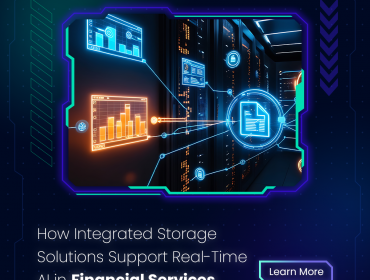While Cloud offers almost unlimited hardware and software resources, Banking sector traditionally has been a bit reluctant towards embracing this technology.
However lately we are witnessing this sector warming up to cloud, and why not? Banking sector is among few of themes voluminous data generating sectors today, what with the online and mobile wallets and telecom and other such companies getting Banking licenses.
Banking sector is now experiencing an overload of data and is under clear pressure to mine and analyse this data and at the same time keeping its efficiencies at the maximum and costs at the minimum
The security challenges have also pushed innovations like Private and Hybrid cloud concepts, which are now also immensely useful for many other industry verticals.
In fact as reported by Bloomberg, 25 of the world’s largest financial and insurance companies are already beginning to put their select applications in the cloud. That’s more than 70% of world’s top financial institutions!
If we were to highlight a few specific benefits of cloud for the banking sector, they would be as follows:
- With remote access to the information regarding new implementations and internal changes, the cloud brings efficiency in providing access to all involved parties in a single format and place to securely and effectively evaluate the matter.
- Cloud technology enables banks to quickly scale processing capacity up or down in order to react to changes in customer demand
- The combination of big data and potentially unlimited computing power will allow banks to develop systems capable of providing better insight into clients and make better decisions on their behalf. Services could become more customised
- Private clouds allow more systems to operate at high transaction volumes without loading the network or slowing the process, ensuring better customer experience.
Having said that, there are a few challenges that Cloud companies need to focus on, so that the adoption of cloud among banking and financial institutions can keep growing: Security and compliance: conforms to and complies with BYOD, specific banking Acts around privacy and accessibility
Always on, Availability: ensure that applications and data are always available in the event of a natural disaster or an unpredictable event
Transparent Cloud Management in terms of licences, regulations, performance tracking and dashboards
Interoperability: banks will need to ensure data and applications can be moved across cloud environments from a number of providers. They should look to develop a single interface and management layer that can work across different platforms internally and externally.
The above challenges can also be viewed as opportunities for cloud tech companies, and if addressed well this can boost cloud adoption even further amongst BFSO vertical












